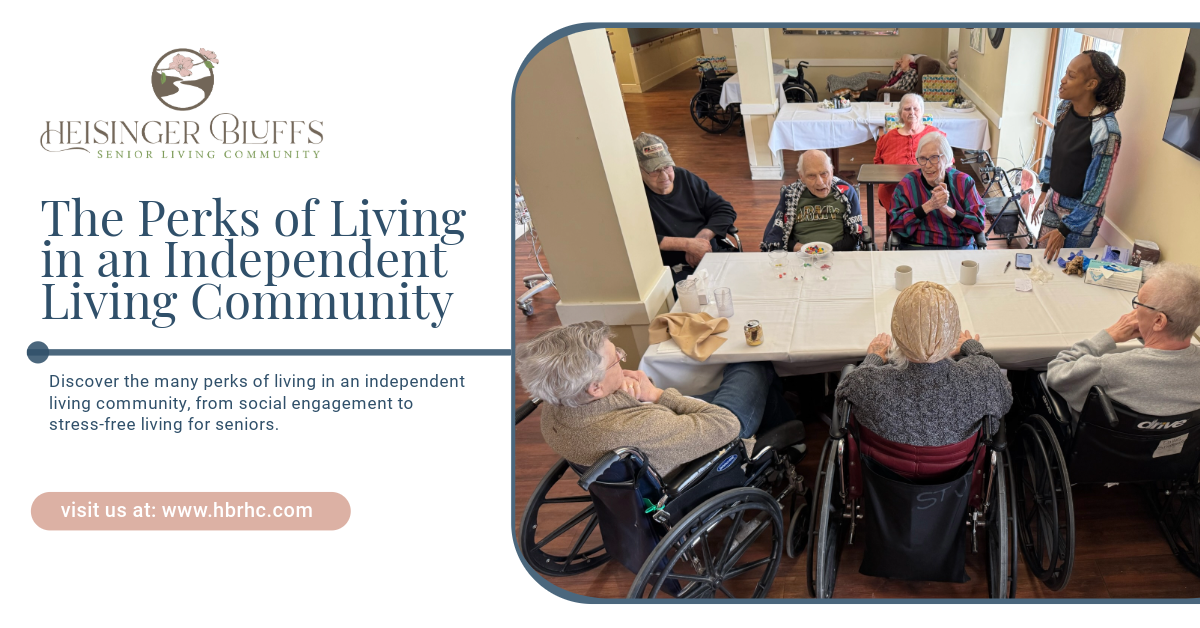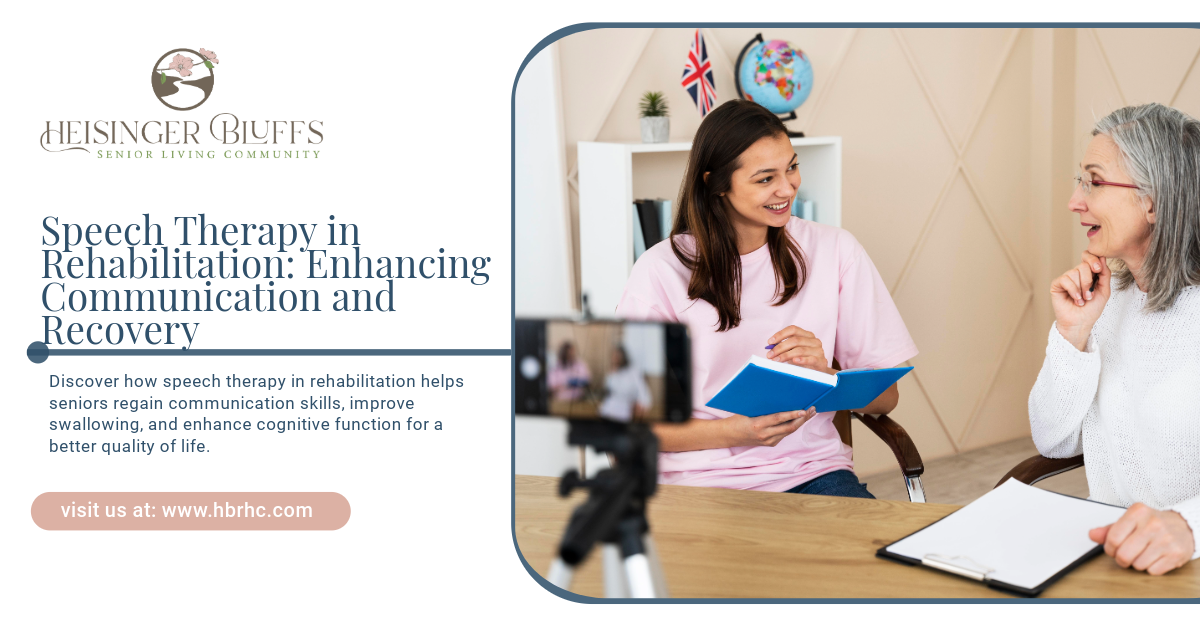Get in touch
The Science of Aging: How to Stay Mentally Sharp in Senior Years

As we age, it’s natural to notice changes in our physical health and mental sharpness. Many seniors may experience a decline in memory or cognitive function as they grow older, but this doesn’t have to be the case. The science of aging shows that the brain has a remarkable ability to maintain and even improve cognitive function through the right lifestyle choices.
Maintaining mental sharpness as we age is not only possible but can significantly enhance the quality of life. In this blog post, we’ll explore the science behind aging and provide practical strategies that seniors can implement to stay mentally sharp throughout their later years.
Understanding the Science of Aging and Cognitive Health
Before diving into the strategies for staying sharp, it's essential to understand the scientific process behind aging and how it affects the brain. As people age, several factors influence brain health, including genetics, lifestyle choices, and environmental influences.
Age-Related Brain Changes
The brain undergoes changes as we get older, and some of these changes can affect cognitive function. These changes may include:
- Decreased brain volume: Some shrinkage of the brain occurs naturally with aging, particularly in areas that control memory and learning.
- Slower processing speed: As we age, the brain's processing speed tends to slow down. This doesn’t mean that thinking becomes less accurate, but reactions and decision-making may take longer.
- Reduction in neurotransmitters: Neurotransmitters are chemicals that help transmit signals between brain cells. A decline in neurotransmitters like dopamine and serotonin can contribute to slower thinking and memory challenges.
Despite these changes, the brain remains highly adaptable, a phenomenon called "neuroplasticity." This means the brain has the ability to reorganize itself and form new neural connections, which is why mental stimulation can help keep the brain sharp.
The Role of Lifestyle Choices
While age-related brain changes are inevitable, the lifestyle choices we make can have a significant impact on how well we maintain mental sharpness. Regular physical activity, a balanced diet, staying socially engaged, and engaging in cognitive exercises are all factors that help preserve cognitive health.
Strategies to Keep Your Brain Sharp in Your Senior Years
While we can’t stop the aging process, we can certainly take steps to optimize our brain health and mental sharpness. Below are several scientifically-backed strategies to help seniors stay mentally sharp.
2.1. Engage in Regular Physical Activity
Exercise is one of the most powerful tools for preserving cognitive function in older adults. Research consistently shows that physical activity promotes brain health by increasing blood flow to the brain, stimulating the release of growth facts, and improving memory and cognitive performance.
Benefits of Exercise on Cognitive Health:
- Boosts brain-derived neurotrophic factor (BDNF): Exercise increases BDNF, a protein that supports the growth of new brain cells and protects existing ones.
- Reduces the risk of cognitive decline: Regular exercise has been shown to lower the risk of Alzheimer’s disease and other forms of dementia by keeping the brain healthy.
- Improves mood and reduces stress: Physical activity releases endorphins, which can improve mood and reduce stress, both of which are beneficial for mental health.
2. Eat a Brain-Healthy Diet
What you eat can have a profound effect on your brain health. A nutritious diet that includes a variety of vitamins, minerals, and healthy fats provides the nutrients the brain needs to function at its best. A brain-healthy diet is rich in antioxidants, omega-3 fatty acids, and anti-inflammatory foods, all of which help protect the brain from damage and support cognitive function.
Key Nutrients for Brain Health:
- Omega-3 fatty acids: Found in fatty fish like salmon, flaxseeds, and walnuts, omega-3s help reduce inflammation and promote brain function.
- Antioxidants: Berries, dark leafy greens, and nuts contain antioxidants that protect brain cells from oxidative stress, which can contribute to cognitive decline.
- B vitamins: B vitamins, particularly B6, B12, and folate, play a role in maintaining cognitive function and may help reduce the risk of Alzheimer’s disease.
- Polyphenols: Found in foods like dark chocolate, green tea, and berries, polyphenols are compounds that have been shown to improve brain function and protect against age-related cognitive decline.
3. Keep Mentally Stimulated
Just as physical exercise strengthens muscles, mental exercises can help preserve and even enhance cognitive function. Engaging in activities that challenge your brain and require concentration can help improve memory, problem-solving skills, and overall mental sharpness.
Activities to Stimulate the Brain:
- Puzzles and games: Activities such as crossword puzzles, Sudoku, chess, and card games can help improve cognitive function by requiring concentration and strategic thinking.
- Learning new skills: Taking up a new hobby or learning a new language can stimulate the brain and create new neural connections.
- Reading and writing: Regular reading and writing engage the brain and help improve memory and focus.
4. Stay Socially Active
Social interaction is a powerful tool for mental well-being. Research shows that seniors who maintain strong social connections experience less cognitive decline and better mental health overall. Engaging in conversations, participating in group activities, and forming meaningful relationships can help improve cognitive function and reduce the risk of dementia.
Social Activities That Promote Mental Sharpness:
- Joining clubs or groups: Many senior living communities offer social clubs, such as book clubs or hobby groups, where residents can engage in shared interests and interact with others.
- Volunteering: Volunteering is a great way to stay socially active, engage with the community, and feel a sense of purpose.
- Spending time with family and friends: Regularly socializing with loved ones is a simple but effective way to keep your brain active and engaged.
5. Manage Stress and Sleep Well
Chronic stress and poor sleep can have a detrimental effect on cognitive health. Stress hormones, such as cortisol, can damage brain cells over time, and lack of sleep can impair memory, focus, and overall brain function.
Stress Reduction Techniques:
- Mindfulness and meditation: Mindfulness practices and meditation have been shown to reduce stress and promote mental clarity.
- Breathing exercises: Deep breathing exercises can help relax the mind and reduce tension in the body.
- Physical relaxation: Yoga and tai chi are great ways to reduce stress while improving flexibility and balance.
The Importance of Sleep:
Getting enough restful sleep is crucial for brain health. During sleep, the brain consolidates memories, processes information, and detoxifies. Seniors should aim for 7–9 hours of sleep each night to support cognitive health.
6. Consider Cognitive Training and Brain Games
Many senior living communities now offer cognitive training programs or access to brain games designed to improve memory, attention, and problem-solving skills. These programs often involve activities like memory recall exercises, logic puzzles, and attention-building tasks. These activities provide mental stimulation and challenge the brain to work more efficiently.
Final Thoughts
By adopting these lifestyle strategies, seniors can significantly improve their chances of maintaining mental sharpness and reducing the risk of cognitive decline. Staying physically and mentally active, eating a healthy diet, and managing stress are all essential components of a brain-healthy lifestyle. It’s never too late to start making changes that will benefit your brain health in the long term.
At Heisinger Bluffs, we understand the importance of mental wellness and offer a variety of programs designed to help our residents maintain cognitive function, stay socially engaged, and continue learning throughout their senior years. Our goal is to support every resident in achieving their best possible quality of life, with opportunities for physical, mental, and social well-being.
Frequently Asked Questions
How can physical activity help with cognitive function in seniors?
Physical activity promotes blood flow to the brain, stimulates the release of growth factors, and can enhance memory and cognitive performance. Exercise also helps reduce the risk of cognitive decline and conditions like Alzheimer’s.
What are some brain-boosting foods I should include in my diet?
Foods rich in omega-3 fatty acids, antioxidants, B vitamins, and polyphenols, such as fatty fish, berries, leafy greens, and nuts, support brain health and cognitive function.
What social activities can help improve mental sharpness in seniors?
Social activities such as joining clubs, volunteering, engaging in group hobbies, and spending time with loved ones all contribute to better mental health and cognitive function in seniors.
Resources:
- https://my.clevelandclinic.org/health/articles/22513-neurotransmitters
- https://www.nature.com/articles/s41598-023-33063-9
- https://www.health.harvard.edu/healthbeat/foods-linked-to-better-brainpower
- https://pmc.ncbi.nlm.nih.gov/articles/PMC10910782/



Want to know more?
We will get back to you as soon as possible.
Please try again later.
You May Also Like To Read
Heisinger Bluff’s Life Plan Community is here to make your senior years safe, stimulating and enjoyable so that you can savor the present, knowing the future will be taken care of.
QUICK LINKS
CONTACT
©2024. Heisinger Bluffs. All rights reserved.








